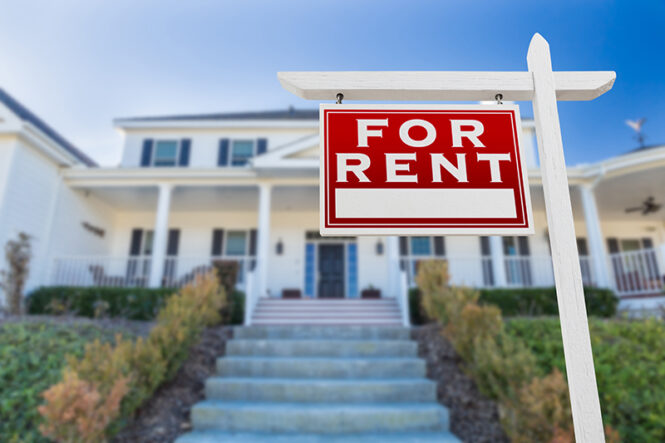Many people are contemplating the idea of becoming private landlords and it’s not because they have a hard time paying the bills at the end of the month. In the United Kingdom, the number of households in the private rented sector made a leap from 2,8 million in 2008 to 4,5 million in 2017. Some of the advantages of letting a property include but aren’t limited to income from renters, property value growth, and making tax deductions. What about you? Do you intend to let your property? If the answer is yes, take these steps on your incredible journey.
Find a great tenant

The longer someone stays in the property, the better. You won’t have to waste time looking for another tenant. Do your best to find a tenant that will last. A person who sticks around for a long, long time guarantees monthly rental income, not to mention that they will take better care of the property. Now, how are you supposed to find such a person? You could promote your property in local newspapers, both in print and online. The best thing you can do, however, is to seek the advice of a letting agent.
Letting agents have a few tricks up their sleeves, so they can find good tenants in a relatively short period of time. Most importantly, they have access to screening tools like employment verification. It’s important to keep in mind that tenants have a series of bullet points itemizing the things that they want in a home. For example, tenants are looking for:
Proximity to infrastructure, amenities, and facilities
- A fair price
- A comfortable lifestyle
- Chance to bring their pets
- Good communication
So, if you don’t have years of letting experience, you might want to ask for help. Finding the right tenant for your home is hard.
Anticipate periods without income

The truth is that there will be periods without income. Not all rental investments are successful from the very beginning. It may take a while to find a long-lasting tenant. Needless to say, during this period, you won’t be making any money because the property is unoccupied.
You won’t have rental income, but you will still incur bills. It’s essential not to forget about the periods between tenancies. If the tenant decides that it’s time to move on, you have to limit the vacancy period. This is no easy thing to do, especially if the real estate market experiences fluctuations. Maybe so, yet you have to be prepared.
Walton Robinson letting agents draw attention to the fact that void periods of considerable length affect the bottom line of your investment. To be more precise, they have the power to reduce the return on your investment.
If you want to keep your investment property earning rather than costing you, you need to think in advance. The lease agreements should expire in a good period of time. Generally speaking, you get more choice when it comes down to tenants during peak season, i.e. from May to August. Another thing to keep in mind is that tenants have a great many options are they typically choose the most affordable one. Consider offering rent reductions.
At first glance, it might seem that not having a stable income isn’t such a big deal. You don’t live off the rental income. This is because you don’t think like a private landlord. Letting a property is just like a business, which means that you should get a check at the end of the month.
Fully understand your responsibilities

As a landlord, you have not only rights but also responsibilities. So, if you let a property and become a landlord, there are certain responsibilities that come with the newly-acquired status. Here are some of the legal responsibilities that come with letting a property:
1. Prevent hazards on your property
The property should be safe for the person/people living in it. As far as the dangers in your home are concerned, know that the vast majority of fatalities are associated with electricity. Hire a reliable electrician and make the necessary upgrades. From time to time, it’s a good idea to do a security audit. There might be vulnerabilities that you’re not even aware of. Taking a walk around the property isn’t enough to uncover hidden problems.
2. Offer an Energy Performance Certificate
What the Energy Performance Certificate does is offer information regarding the property’s energy usage and typical energy costs. The building is granted a rating between A, which stands for very efficient, and G, which stands for inefficient. In case you didn’t already know, you must order a certificate of this type even before marketing the rental property. In countries like Scotland, it’s necessary to display it somewhere on the property.
3. Serve the How to rent guide
The tenant will expect to receive a How to rent guide. In places like England, this is a normal expectation. The landlord, that means you, is required by law to serve a copy of the booklet to the tenant at the beginning of the collaboration. If you don’t do this, you could get prosecuted. You can offer a printed version or send a digital copy. It doesn’t really matter. If the tenancy is renewed, you don’t have to serve yet another copy.
Count on professionals to navigate the financial aspects

Letting a property is no fun and games. In other words, you have numerous financial responsibilities if you become a private landlord. There are charges that will affect you. Stamp Duty is just one of them. The actual threshold is £125,000 for residential properties. However, you might not have to pay tax on rental income at all. You’re allowed to deduct mortgage interests, as well as other expenses from your rental income. If you have a hard time navigating the financial aspects of being a landlord, reach out to professionals.
The bottom line is that letting a property isn’t as easy as people think it is. It’s a business based on people, but with heavy financial implications. If you act responsibly, your chances of being successful are strong. Wisdom and experience will help you make it to the finish line. So, don’t despair.
 Imagup General Magazine 2024
Imagup General Magazine 2024



